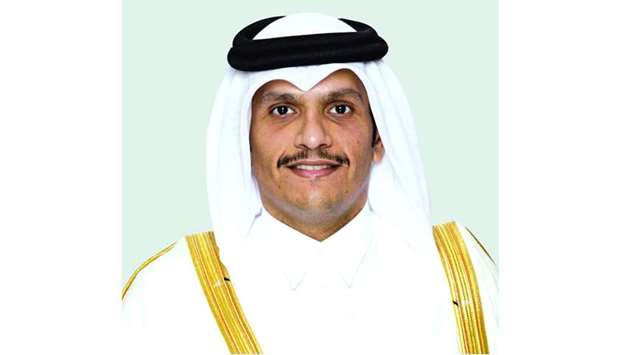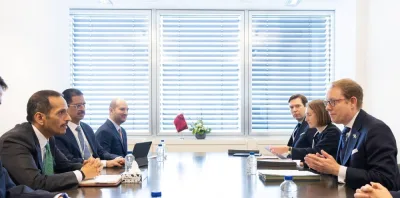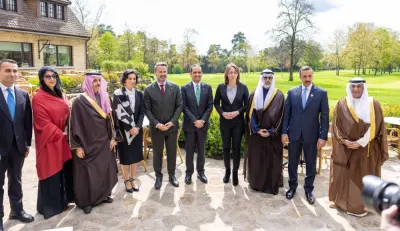The Al-Ula Declaration is a victory for the Gulf Co-operation Council (GCC), HE the Deputy Prime Minister and Minister of Foreign Affairs Sheikh Mohamed bin Abdulrahman al-Thani has said.
The declaration was signed in Al-Ula, Saudi Arabia, on Tuesday for the restoration of full relations between Qatar and the nations that had cut ties in 2017.
Speaking to Al Jazeera, HE Sheikh Mohamed said: “We consider what happened to be a reconciliation. Saudi Arabia represented all the parties, and everyone participated and signed the Al-Ula Declaration.”
“We found that all the parties were willing to solve the crisis, and Saudi Arabia was entrusted to represent the rest of the countries. We cannot say this is a success for Qatar, Saudi Arabia or any other country, but rather it is a success for everyone," he stressed, adding that the crisis led to an exceptional situation over the past years and the solution was a victory for the GCC.
He also noted that while there there is no doubt the process would take its time, it is easier in terms of the people than for the political aspects.
HE Sheikh Mohamed said the issue of Al Jazeera was not raised. “We are proud of this institution, its media professionals and its presence in Qatar. We guarantee freedom of expression and the issue of Al Jazeera must be dealt with positively and constructively.”
He said it was agreed not to publish the declaration, but it contained basic principles that were clarified, and that "the Al-Ula Declaration's specific rules are general rules and key principles and their publication has not been discussed. I do not know the extent of the interest of the other countries in publishing the summit's final declaration".
HE Sheikh Mohamed clarified that the basics of the Al-Ula Declaration are not to cause any prejudice to any State or interfere in its affairs, or threaten the security of the region.
He said the circumstances of the 2017 crisis were different from those of 2014, "the rift was different, and therefore the considerations are different”.
He went on to say that the GCC countries have different visions about dealing with Iran and "we want solutions to curb any escalation".
Speaking to Al Jazeera, HE Sheikh Mohamed said: “We consider what happened to be a reconciliation. Saudi Arabia represented all the parties, and everyone participated and signed the Al-Ula Declaration.”
“We found that all the parties were willing to solve the crisis, and Saudi Arabia was entrusted to represent the rest of the countries. We cannot say this is a success for Qatar, Saudi Arabia or any other country, but rather it is a success for everyone," he stressed, adding that the crisis led to an exceptional situation over the past years and the solution was a victory for the GCC.
He also noted that while there there is no doubt the process would take its time, it is easier in terms of the people than for the political aspects.
HE Sheikh Mohamed said the issue of Al Jazeera was not raised. “We are proud of this institution, its media professionals and its presence in Qatar. We guarantee freedom of expression and the issue of Al Jazeera must be dealt with positively and constructively.”
He said it was agreed not to publish the declaration, but it contained basic principles that were clarified, and that "the Al-Ula Declaration's specific rules are general rules and key principles and their publication has not been discussed. I do not know the extent of the interest of the other countries in publishing the summit's final declaration".
HE Sheikh Mohamed clarified that the basics of the Al-Ula Declaration are not to cause any prejudice to any State or interfere in its affairs, or threaten the security of the region.
He said the circumstances of the 2017 crisis were different from those of 2014, "the rift was different, and therefore the considerations are different”.
He went on to say that the GCC countries have different visions about dealing with Iran and "we want solutions to curb any escalation".



